Malaria..
Malaria is a prevalent and deadly disease that has plagued humanity for centuries. It is caused by a parasite called Plasmodium, which is transmitted through the bites of infected mosquitoes. Malaria poses a significant health risk, particularly in tropical and subtropical regions, affecting millions of people each year.
In this comprehensive article, we will explore the various aspects of malaria, including its causes, symptoms, treatment, prevention, and the global efforts to combat this silent killer.
Malaria: A Global Health Concern
Malaria is a major public health issue worldwide, especially in regions with warm climates and high mosquito populations. According to the World Health Organization (WHO), approximately 229 million cases of malaria were reported in 2019, resulting in nearly 409,000 deaths.
Sub-Saharan Africa carries the heaviest burden, with over 90% of malaria cases and deaths occurring in this region. However, malaria is not limited to Africa and affects many other parts of the world as well.
The Life Cycle of Malaria Parasite
To understand how malaria infects humans, it is essential to grasp the life cycle of the malaria parasite. The cycle begins when an infected female Anopheles mosquito bites a human, injecting the Plasmodium parasite into the bloodstream.
Once inside the body, the parasites travel to the liver, where they multiply and develop into a different form known as merozoites. These merozoites are then released into the bloodstream, invading red blood cells and causing them to burst, leading to recurring cycles of fever and other symptoms.
Symptoms of Malaria
This Disease presents a wide range of symptoms, which can vary depending on the type of malaria parasite involved and the individual’s immune response. The common symptoms include:
1. High fever (often cyclic)
2. Chills and sweating
3. Headaches
4. Muscle and joint pain
5. Fatigue and weakness
6. Nausea and vomiting
It is crucial to note that this disease’s symptoms can mimic those of other illnesses, making diagnosis challenging. If you experience any of these symptoms, especially after traveling to a malaria-endemic area, it is essential to seek medical attention promptly.
Diagnosing Malaria
Accurate and timely diagnosis of mal’aria plays a critical role in ensuring effective treatment. Several diagnostic methods are available, including:
• Microscopy: This is the traditional method of diagnosing mal’aria, where a blood sample is examined under a microscope for the presence of mal’aria parasites.
• Rapid Diagnostic Tests (RDTs): RDTs are simple and quick tests that detect specific mal’aria antigens in the blood. They are particularly useful in areas with limited laboratory facilities.
• Polymerase Chain Reaction (PCR): PCR is a highly sensitive and specific molecular technique that can detect even low levels of mal’aria parasites in the blood. It is primarily used for research purposes and in cases where other methods yield inconclusive results.
Early and accurate diagnosis allows healthcare providers to initiate appropriate treatment promptly, reducing the risk of severe complications and death.
Treatment Options
This disease can be a severe and life-threatening disease if left untreated. The choice of treatment depends on several factors, including the type of malaria parasite, the severity of the infection, the patient’s age, and any underlying health conditions. Antimal’arial medications are the primary treatment for this disease and include:
• Artemisinin-based Combination Therapies (ACTs): ACTs are the most effective antimal’arial drugs available today. They combine an artemisinin derivative with another antimal’arial drug to ensure rapid parasite clearance and reduce the risk of developing drug resistance.
• Chloroquine: Chloroquine was once widely used to treat malaria. However, due to the emergence of chloroquine-resistant strains of the parasite, its use is now limited to regions with no known resistance.
• Quinine and Quinidine: Quinine and its derivative, quinidine, are medications that have been used to treat malaria for many years. They are still effective against some types of malaria parasites but are not commonly used as first-line treatments.
It is essential to complete the full course of treatment to ensure complete eradication of the parasites and prevent the development of drug resistance.
The Key to Control
Prevention is the cornerstone of malaria control efforts, particularly in areas where the disease is endemic. Here are some key strategies for preventing malaria:
1. Insecticide-Treated Bed Nets (ITNs): Sleeping under ITNs provides a physical barrier against mosquito bites and is highly effective in reducing this dangerous disease transmission.
2. Indoor Residual Spraying (IRS): IRS involves spraying insecticides on the walls and ceilings of houses to kill mosquitoes that come into contact with the treated surfaces.
3. Antimalarial Medications (Chemoprophylaxis): Travelers visiting malaria-endemic areas can take antimalarial medications before, during, and after their trip to prevent infection.
4. Environmental Management: Eliminating mosquito breeding sites, such as stagnant water sources, can significantly reduce mosquito populations.
Combining these preventive measures with community education and awareness campaigns plays a vital role in malaria control programs.
Frequently Asked Questions (FAQs)
Q: Is it possible for mal’aria to spread from one person to another?
A: No, this disease cannot spread directly from person to person. It requires the bite of an infected mosquito to transmit the parasite.
Q: Can malaria be prevented through vaccination?
A: Currently, there is no licensed vaccine available for this disease prevention. However, ongoing research efforts hold promise for the development of an effective malaria vaccine in the future.
Q: Are all species of mosquitoes capable of transmitting malaria?
A: No, only female mosquitoes of the Anopheles genus can transmit the malaria parasite. Other species of mosquitoes do not carry the Plasmodium parasite.
Q: Is this disease a curable disease?
A: Yes, this disease is curable if diagnosed early and treated promptly with appropriate antimalarial medications.
Q: Can this disease recur after treatment?
A: In some cases, malaria parasites can persist in the liver and cause relapses months or even years after the initial infection. This is more common with certain species, such as Plasmodium vivax and Plasmodium ovale.
Q: How can I protect myself from this disease when traveling to a high-risk area?
A: Travelers should take precautions such as using insect repellents, wearing long sleeves and pants, sleeping under insecticide-treated bed nets, and taking antimalarial medications as prescribed.
Conclusion
Malaria remains a significant global health challenge, affecting millions of people worldwide. Understanding the causes, symptoms, treatment options, and preventive measures is crucial in the fight against this deadly disease. By combining efforts in research, prevention, and treatment, we can hope to achieve a malaria-free world in the future.
Important Reminder:
The information provided on healthlifeai.com is intended for informational purposes only. While we have made efforts to ensure the accuracy and authenticity of the information presented, we cannot guarantee its absolute correctness or completeness. Before applying any of the strategies or tips, please consult a professional medical adviser.



















